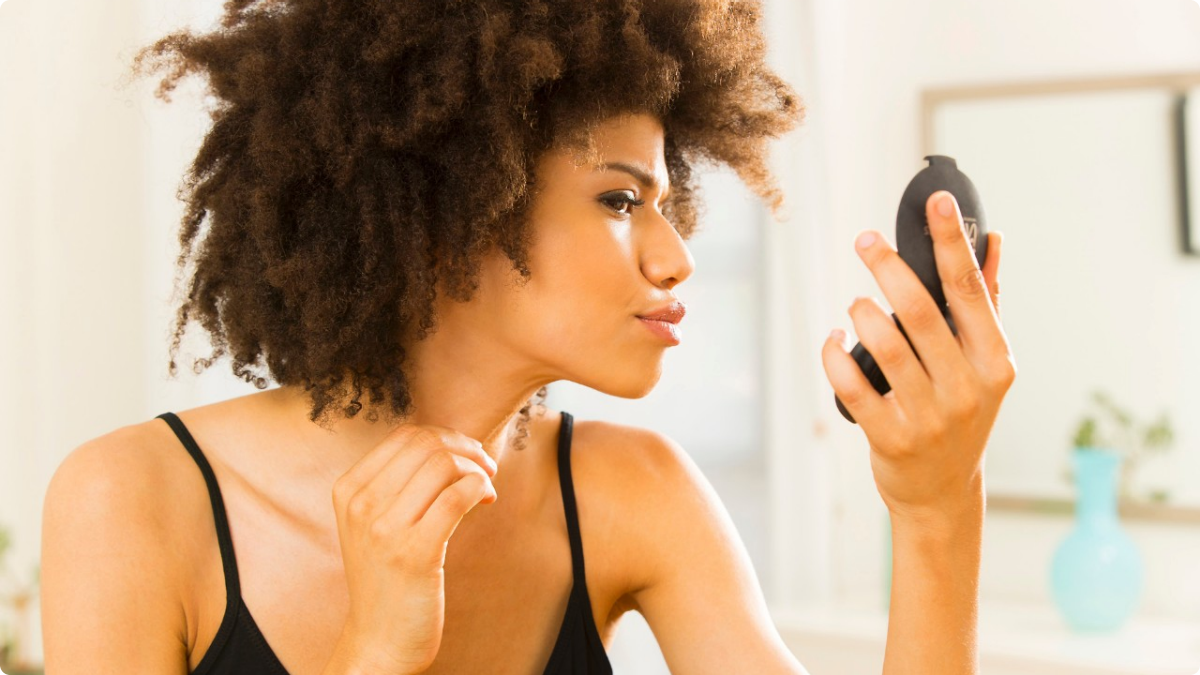Astrology is a fun thing to think about for many people, and for every person who thinks it’s utter garbage there’s bound to be someone who uses their astrological signs to make many important life choices. Personally, I think it has as much power over you as you allow it – just like any other “alternative” sciences.
So, what does this mean for you? Your choice to believe in astrology or not is purely a personal decision. If you find correlations that help you, that’s great! Everyone needs something to believe in, and if astrology is your thing, the following “sex horoscopes” may help guide you on your path to sexual fulfillment for this month.
Aries (March 20 – April 20)
Aries, if you’re single, you should expect a great deal of new encounters this month – some may even call them adventures on their own! On the 9th, Mercury goes direct, which promises that your love and sex will be truly exciting. Later in the month, Mars joins with Venus to entice the prospect of new dates and sexy fun. If it seems like your romantic interest isn’t feeling the same way about you, rest assured that they’re probably just shy. Make the first move and you will be rewarded.
For the Rams in a serious relationship, the full moon brings a blossoming of your love, so you should plan for new romantic encounters with your love. This will lead to the passionate sex you’ve been dying for, and makes for a perfect excuse to look for that sexy Halloween costume you’ve had your eye on. Not big into Halloween? That’s fine, just take advantage of the current influx of costumes to pick out an outfit that’s only for your partner to see.
Taurus (April 20 – May 21)
In the second half of the month, the shroud that’s been covering your sensuality should be lifted, and you have plenty of time to approach that new boo you’ve been eyeing. Make that date – you’ve got a great deal of luck coming to you this month. Make sure you don’t use this as an excuse to over-spend on your dates, though; this isn’t the way to win their affections.
Committed Bulls, the cooler weather will no doubt bring back the spark that you’ve been repressing lately. It’s a great time to get frisky with your lover – maybe even get the Halloween treats and costumes into the mix for some special holiday fun.
Gemini (May 21 – June 21)
Gemini, this month brings you personal satisfaction and a great deal of pleasure. Your intelligence and charm will help you win over that woman you’ve been pursuing. Your judgment will be clear and your sex drive will roar because of it. You’ll be able to accurately discern who is interested in you sexually, and use this to your full advantage this month. However, towards the end of the month, this will begin to taper off, and you’ll be more inclined to connect with your family than to seek out a new flame – don’t resist this urge!
If you’re in a committed relationship, your dual spirit will lead you to a deeper personal connection with your partner. Take some time to get to know her better – even if you’ve been together years, there’s no doubt a lot more to learn about her. Whether you’re in a relationship or not, this is a good time to seek out new friends, as the wavering in your sex drive will ensure that your attention can be focused on being a good friend and partner, rather than focusing on your sexual needs.
Cancer (June 21 – July 23)
For most of the month, you should be focusing on taking care of your body. This can be particularly difficult with the abundance of candy that’s present everywhere right now, but you must be diligent. Take some time to work on your emotional bonds, and it will translate to a better sexual experience around the 22nd. Don’t plan for any dates on the 27th, as the full moon may interfere with your plans and lead to heartbreak.
Love and sex are both a bit of an investment this month for all Crabs. Exercising with your love interest or partner could prove beneficial, as it will help to regulate your emotions and clear your mind. You will be rewarded for your focus and dedication with the glorious conjunction of Venus, Mars, and Jupiter towards the end of the month.
Leo (July 23 – August 23)
Your animal magnetism will shine bright this month, Leo, and you will be showered with affection. Consider making those changes you’ve been thinking about in regards to your wardrobe and your hair style – these will dazzle your new date. You could try a Halloween shopping date and choose a fun costume for yourself and your new partner – then tempt them to bring it to the bedroom for some extra sexy fun.
For the Lions in a committed relationship, you should put your effort into your relationship right now. Take some time off work, if at all possible, and spend that time with your partner. Get a fun new costume or outfit and parade yourself to your partner – she’s sure to love it. With Halloween so close, the full moon on the 27th promises to be a fun time for a private rendezvous in costume – what do you have to lose?
[interaction id=”561262c874a791dd4b459468″]
Virgo (August 23 – September 23)
During the beginning of the month, you probably encountered some stress and hectic emotions. Rest assured that this is over for now and you can begin to relax. The alignment of Mars and Venus assure that your sexual appetite will boom – you should seek out a new partner and plan a great date. It’ll definitely net you the results you’re looking for.
If you’re in a committed relationship, it’s a good time to rent a sexy movie or read an erotic novel with your love. This activity will bring you closer as a couple and allow you to bring back the spice.
Consider planning an unforgettable evening, including a candlelight dinner, around the 27th – your partner will thank you accordingly!
Libra (September 23 – October 23)
Libra, this month has some few surprises up its sleeve for you, especially as it pertains to sex and love. You should expect some good news sometime soon – but don’t forget to set aside some attention to the important matters like your bills. The alignment of the planets right now will lead you to focus on your lustful thoughts, but you must not neglect the other aspects of your life.
For my committed Libra friends, this means that you should plan on a more romantic tone with your lover, and allow things to progress naturally. Don’t try to push the sex as you can get wrapped up in the moment and cause an argument. In fact, that argument may be inevitable – and it has the potential to translate to a bigger problem down the line. Don’t neglect your partner’s needs, or your financial responsibilities during this time or you can seriously regret it in the near future.
Scorpio (October 23 – November 22)
Scorpio, this month is going to be thrilling for you. There will be plenty of opportunities for new sexual escapades, so you shouldn’t ignore these chances. You will have a great deal of charisma working for you this month, and the sexual power will flow through you better than ever.
Committed Scorpio lovers, your partner will surprise you with an increase in passion. Don’t let your jealousy ruin this extra love right now. Your partner deserves the same love they are giving to you. Especially toward the end of the month, your temper may be short, and you will have to control yourself to ensure you don’t make any silly mistakes.
Sagittarius (November 22 – December 22)
This month is a great time to sweep your lover off her feet with a romantic getaway. It doesn’t matter if you’re whisking her off to a tropical beach or simply visiting the local farm for some apple picking and pumpkin carving. Go shopping for some new clothes and buy those tickets!
For single Sagittarius ladies, this month invites you to take a new date to somewhere you’ve never been. You should try to travel as much as possible, and try new things. Splurge on something you’ve been eyeing for awhile, and take that new date to the restaurant you’ve been dying to try. Consider taking her on a road trip – the alignment of the planets this month almost guarantees that your rendezvous will result in a satisfying sexual experience before the end of the month.
Capricorn (December 22 – January 20)
Single Capricorns should avoid dating any new partners at the beginning of the month, as Saturn has an uneasy alliance with Uranus for a good portion of the month. This can cause some problems in a new relationship, and it’s likely to factor into your love and sex life for the month. It should clear up around the 22nd.
If you’re already in an established relationship, however, you can use this time to deepen your bond with your partner. Watch an old movie or read a book together, and ensure that you are there for each other during this time. Make sure you are guarding against depression as emotions are likely to fluctuate throughout the month.
Aquarius (January 20 – February 18)
The month of October is a great time for Aquarius to meet new people, as there will be plenty of parties (which you love!) and dating will be an adventure. The last week would be a great time to invite that special new person in your life to a fun party – whether it’s planned by a friend or by you yourself.
For my lovers, use this time to get into the Halloween spirit with your loved one. Pick out fun and sexy costumes for each other, unpack the decorations, and get to planning the perfect witchy bash for the spookiest night of the year. This social energy will translate to a charge in your sexual chemistry, and your sex life is bound to see a spike this month.
Pisces (February 18 – March 20)
Love and sex are on the up-and-up for you this month. Your anxieties will begin to fade away, which will allow you to connect with someone special towards the end of the month. If your anxiety hasn’t melted away completely yet, don’t worry – push yourself past it and the right person will come find you.
Fish in a committed relationship should take care that they are not overspending this month, as there are plenty of romantic activities you can do with your partner for much cheaper that will still allow you to harness the sexual energy building this month. Go for a walk and hold hands, roll around in some fallen leaves together, or share a bucket of popcorn at the movies – and then enjoy the sexual spark when you return home.















































